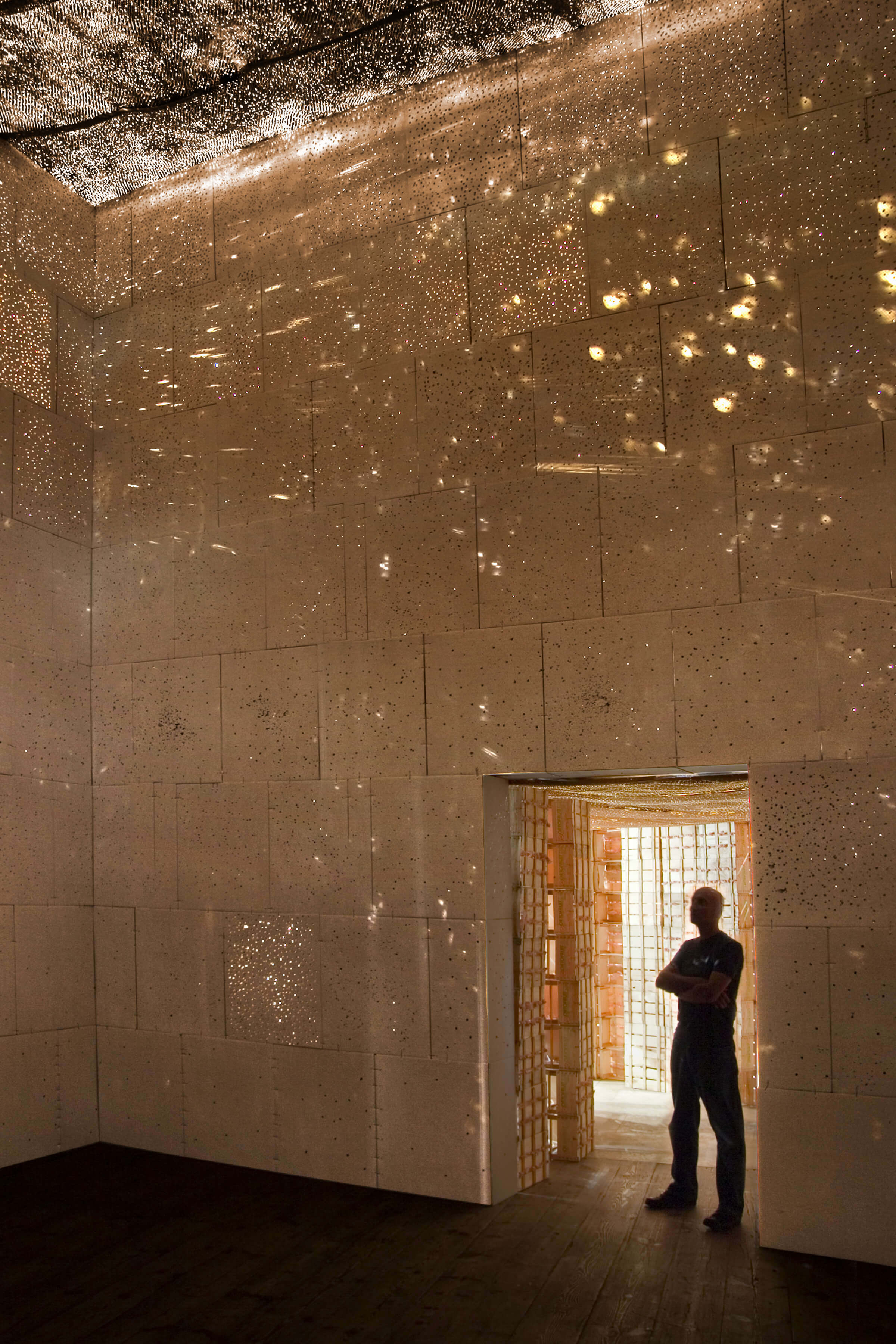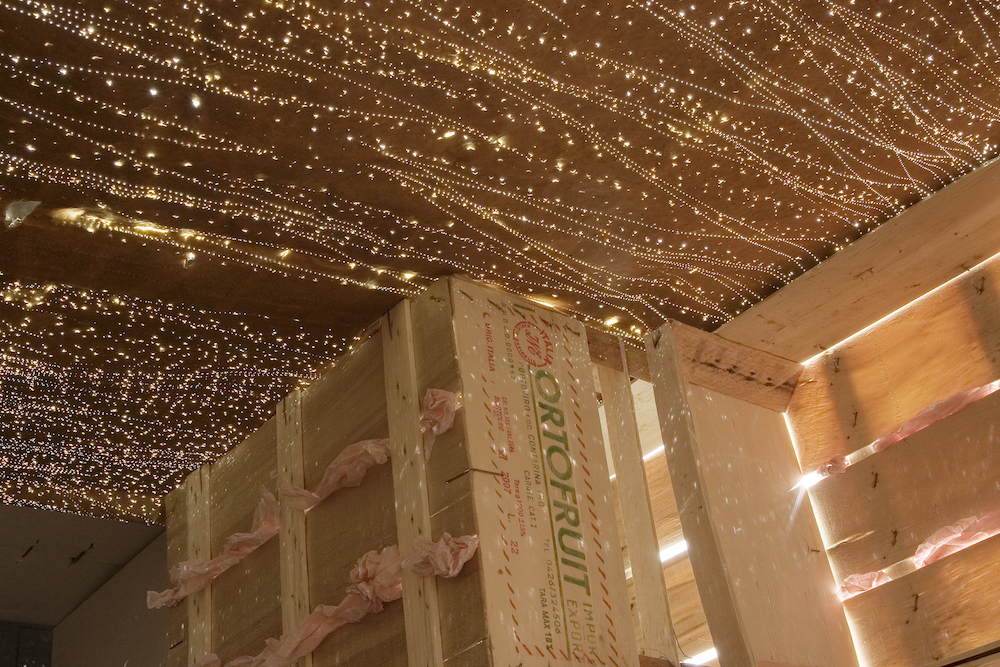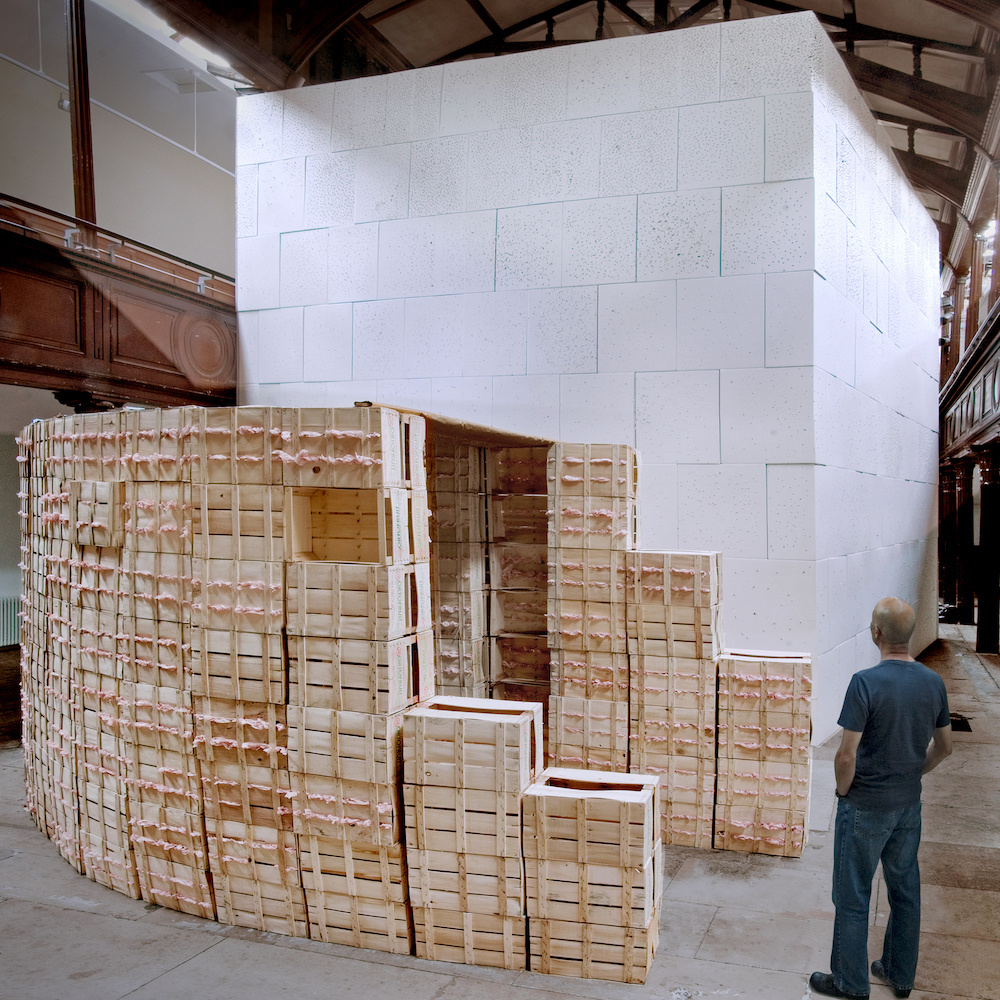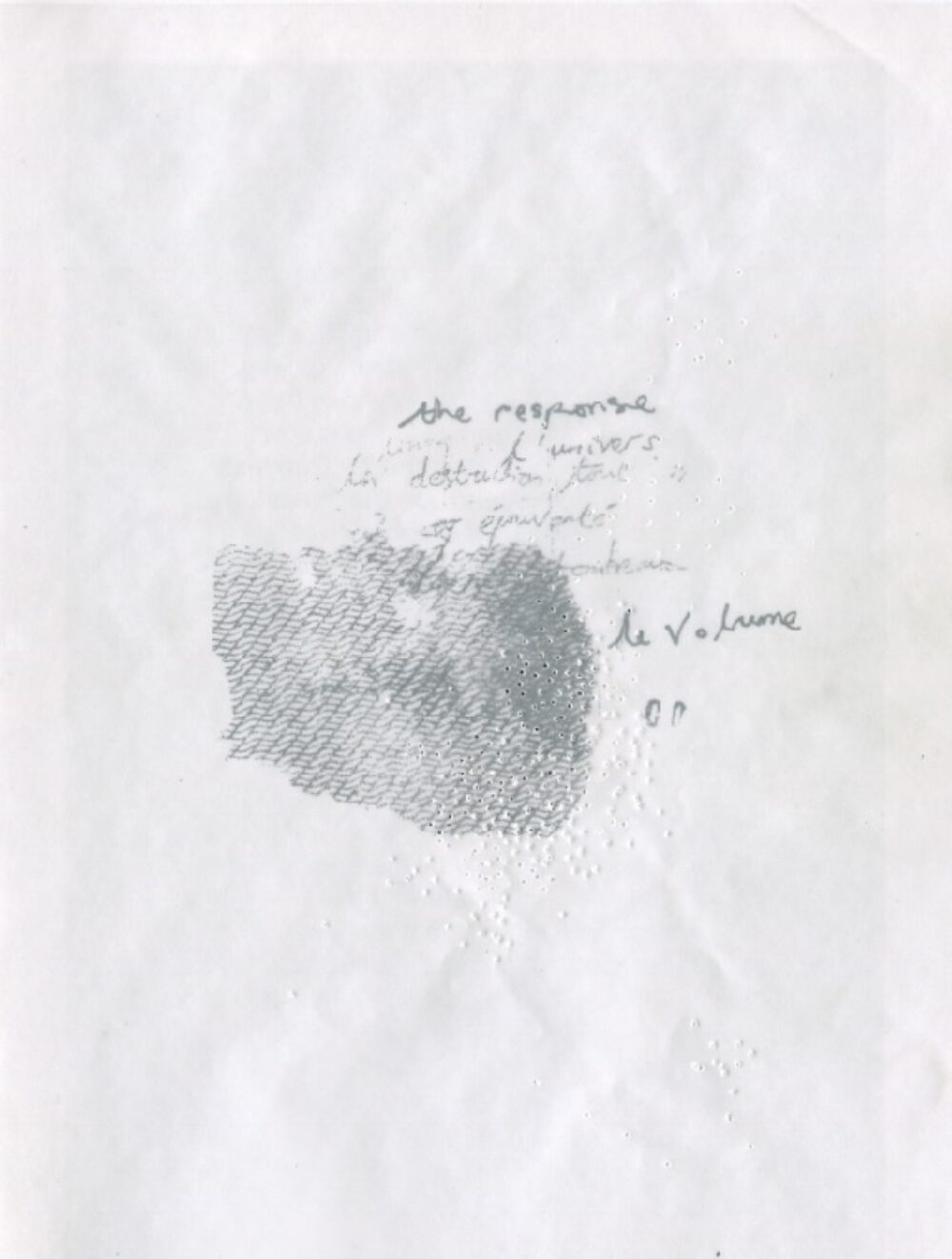La Route Blanche
Dominique De Beir
De Beir concerns herself with the notion of ‘polymorphism’, the ability of a material to exist in more than one form. The huge architectural structures she makes appear to be very solid but are actually quite fragile. The interior dissolves into the exterior and the perforated surface illustrates this paradox; the whole testing the limits of what is visible and mutable.
La Route Blanche echoed the form of derelict military bunkers, often pockmarked by conflict, and the hidden tunnels to be found on both sides of the Channel that have since become eerie and mysterious refuges. In part, it recreated a fictional landscape for adventure and youthful excursions into the unknown; following the paths of countless children engaged in tentative and imaginative encounters and pointing to other, perhaps darker confrontations between fear and curiosity.
Dominique used recycled fruit crates to make a corridor that led to a cavernous space built out of simple cardboard boxes. This temporary structure was randomly perforated by holes that sprinkle the interior with shimmering constellations of light, creating a third zone, an inner sanctum of new intensity and momentary calm.
About The Artist
Dominique De Beir lives and works in Paris. She is known for her delicate 2D work using different types of paper, and for inventing quirky, vicious looking tools for poking holes into it.
In the past few years though De Beir has moved into creating large scale, architectural constructions made of perforated cardboard. These structures echo the Block Houses, derelict military fortifications often pockmarked by conflict, that can be found on both sides of the Channel. Odd leftover places, they have become eerie and mysterious refuges, hideaways for fictional adventures and thresholds for youthful excursions into the unknown.
De Beir concerns herself with the notion of polymorphism, the ability of a material to exist in more than one form. The architectural structures she makes appear robust but are actually quite fragile.
As well as many shows in France, Dominique has had her work exhibited in Germany, Holland and Sicily. Her most recent exhibitions have been at L’H du Siège, Valenciennes, the Maison de Culture in Amiens and in a church in Trémeur, a small village in Brittany. This was the first solo exhibition of her work in the UK.



